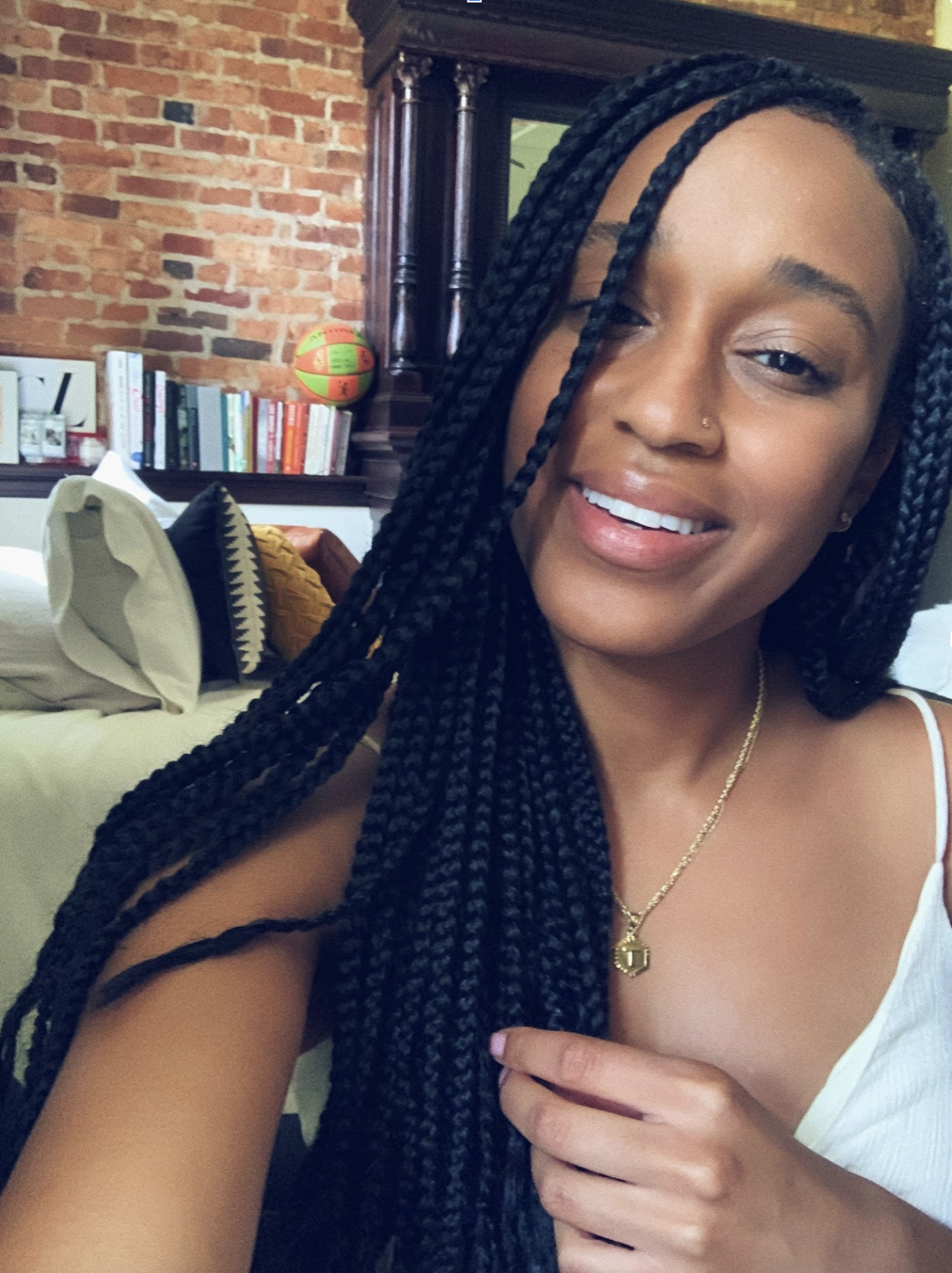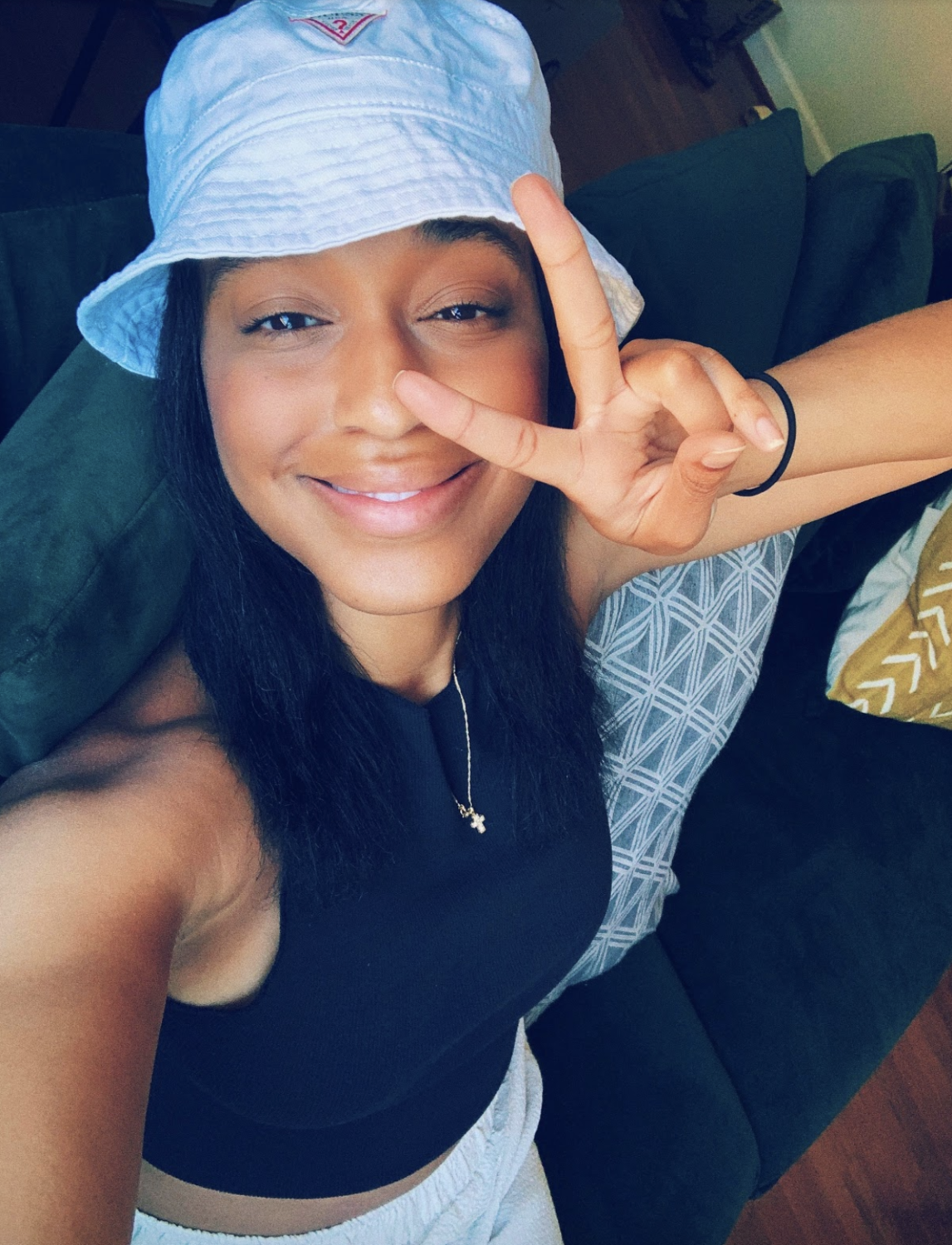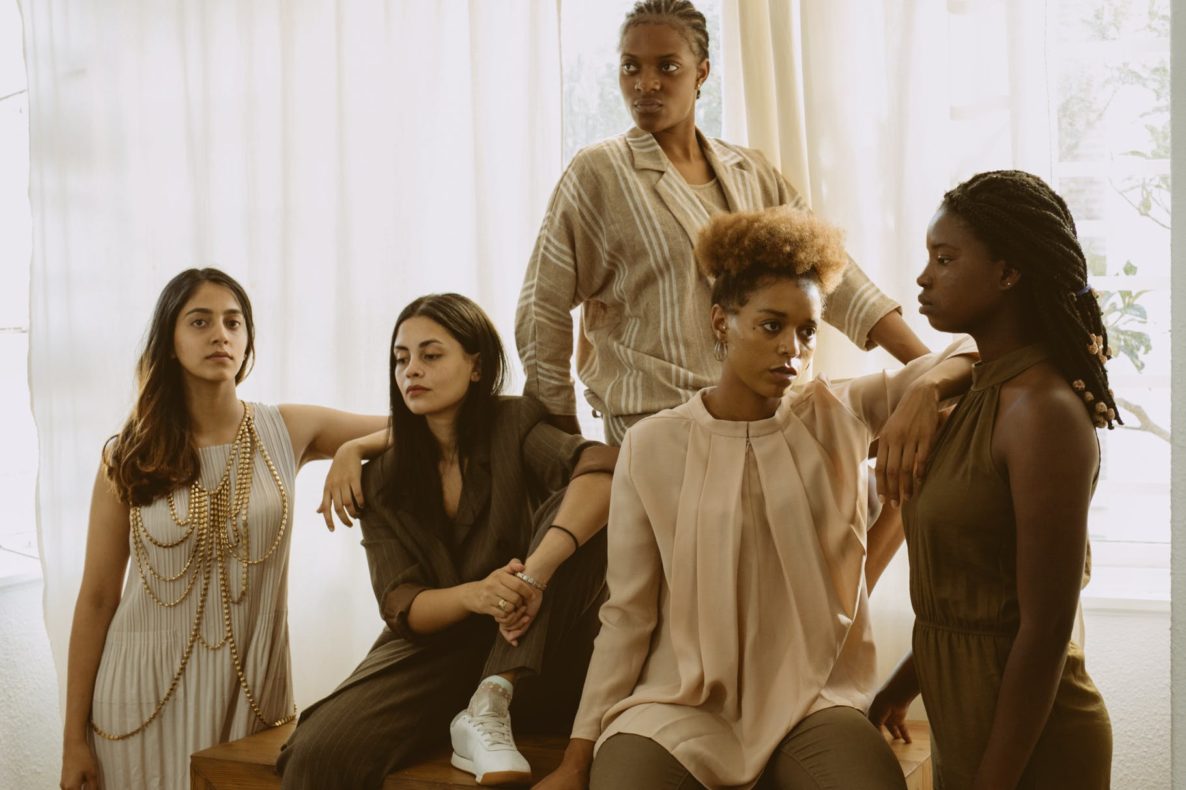There are several truths about you that are innate and unwavering. God-willing, the reputation that precedes you is directly aligned with who you think you are. But, can you think of a time when it did not?

Exactly one year ago, I was the defensive player of the year at work. Nothing got past me and I let nothing go. I felt overlooked, unheard, and suppressed in an environment where I thought hard-work and proven track records would directly correlate to a promotion.
When it did not, and a white woman once again had a leg up on me on the corporate ladder, a match had been ignited — and where there’s smoke, there’s fire.
Fast forward to post ‘rona and I can now easily identify exactly why that situation – one that wouldn’t shock any black woman in America – had set me ablaze. My relationship with myself wasn’t nearly as confident as I portrayed.
I was deeply self-conscious, struggling with the unknown throws of OCD, and harboring so much anger that I had become explosive.
I thought I was flexible when really I lacked clear boundaries and an effective way to communicate them. I thought my happiness wasn’t rooted in money, when really, I was plagued by the numbers in my account and made it synonymous with my value and level of success. I thought I was thriving in my ‘black girl magic,’ when really, I had been dismissive of how I felt about being the only black woman in the room, and my inability to move past that fact made me feel powerless.
Back in 2014, I failed at therapy (miserably) and for two reasons: I didn’t truly research who I was looking for and I didn’t know what I hoped to gain. But after listening to a podcast about Cognitive Behavioral Therapy, I discovered
I needed more than a listening ear; I needed homework and accountability.
CBT started as a mirror (it was and still is tough to look into) but has since become more of a window. I went into it with what I thought was a strong sense of self, thinking I was just there for an unbiased opinion on the bullshit I had experienced at work, and by my third session I had a whole new outlook on who I was and how I handled adversity.
Although my mother believed that most of the key takeaways from my sessions I could’ve found in a self-help book, the reality was that if I could’ve helped myself I would have. There wouldn’t have been multiple panic attacks in the office or numbness on my left side for days at a time.

How can you escape from something you don’t know you’re running from? When we are lacking creativity, we seek inspiration. When we are lost, we seek guidance. Why is it when we are conflicted by the dangers of the human mind do we not think to seek council from a pro?
The stigma of therapy being for white people is just another narrative that was fed to us for so long that POCs still believe it to be true.
Therapy has made me a better daughter, sister and friend (tbd on romantic partner). It made me more aware of where my greatest strengths and weaknesses lie and how to find comfort in them both. It has taught me to be more compassionate – to let go of the idea of how things SHOULD be and embrace the idea of all the ways things COULD be.
Therapy also taught me that OCD isn’t just about flipping a light switch ten times before you leave the room, but that the subtypes of the disorder, like Pure ‘O’ (purely obsessive), are directly tied to the growth and/or demise of a lot of my relationships.
My best friend recently said she admired how I handle adversity with grace, specifically with the trials that 2020 has thrown my way. If it weren’t for my girl Dr. Sahar, there is no way that statement could stand to be true.
So, is therapy worth it? Should you go?
In my opinion, what you find beneficial is a reflection of what you value. Yes, poor therapy or the wrong therapist can be both unyielding and even detrimental. But to question whether therapy is beneficial, especially in an era of self-care, is to question whether the psyche is a part of oneself.
And everyone deserves to experience the invaluable peace that comes with a sound mind. Wouldn’t you agree?
“I Thought I Knew You” is a Peek Mag series aimed at raising awareness for women’s health and specifically The Loveland Foundation, which provides financial assistance to Black women and girls nationally seeking therapy.
P.S. There’s More
- Rachel Cargle’s The Loveland Foundation
- TV writers on building empathy
- More from the ‘I Thought I Knew You’ series
